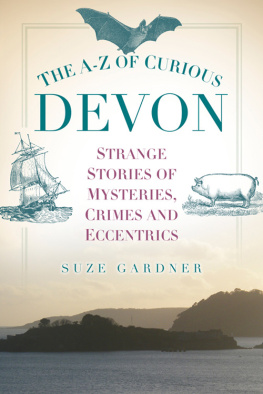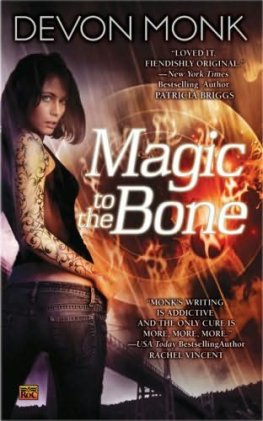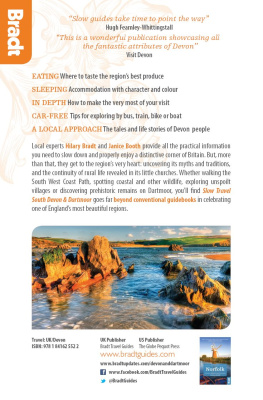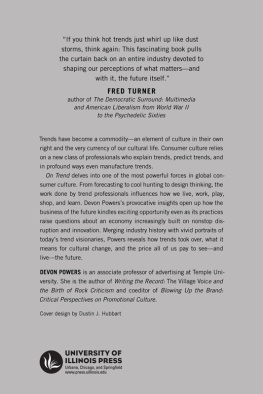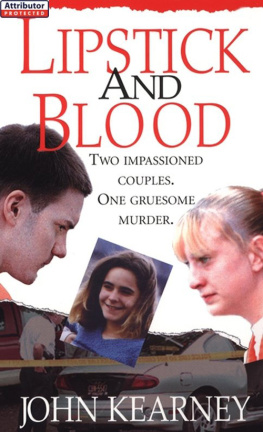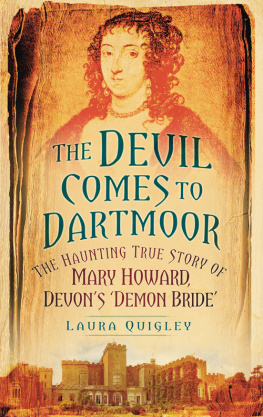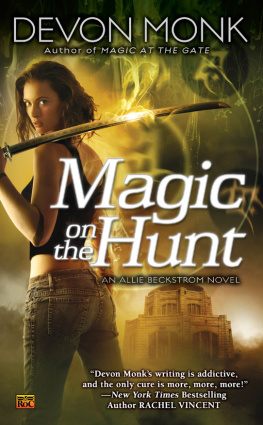

For Dee, Marilyn and the Daves
During the writing of this book I have had a great amount
of help and support and would like to thank the following
people for information and/or photographs:
My colleagues at Exeters underground passages and Exeter City Council and numerous Devon Tourist Information Centres; the staff of the Devon and Exeter Institution Library, Exeter Central Library and the West Country Studies Unit; Killerton House; Kitley House; Powderham Castle; the Church of the Holy Cross, Crediton and Chudleigh Rocks; the landlords of the Devils Stone Inn, Shebbear and the Tom Cobley Inn, Spreyton; the organisers of the Earl of Rone ceremony and the Ottery tar barrels event.
I would also like to thank my family and friends for sharing their ideas, lending me materials and for dragging me away from my computer from time to time to save my eyesight.
Lastly, but by no means least, I want to say a big thanks to my partner Seal who spent months driving me around Devon on his days off during the research/photography phase of the book. Also for putting up wth my vagueness about household matters during the writing-up stage.
All images are my own taken with permission from building owners/event organisers where possible. Several photographs of old pictures come from Devon and Exeter Institution, credited above. Thank you to Braunton Burrows visitor centre for permission to photograph the strip farming map.
Contents
I have always loved history. From the very ancient to the very modern, it fascinates me. My work in the heritage sector, alongside other historians, has allowed me to share the stories I have picked up and to learn many more.
Quite often it isnt the big events, discoveries or wars that are the most interesting or relevant. Sometimes its the seemingly less important things and the stories behind them that give a real insight into the past and even a tantalising glimpse of what might happen in the future.
Some people dismiss little historical curiosities as mere trivia. But concentrating on the wider picture can mean missing the nitty gritty the thoughts, feelings and actions of people from the past that can still bring them to life today. And, anyway, some of the little stories from the past have actually proved to be very important in the grand scheme of things.
People who enjoy history also tend to enjoy the curious and the two often go hand in hand. Devon certainly has enough curious stories to kill the proverbial cat! From smugglers and pirates to famous writers and poets; from eccentric vicars and awful bishops to monsters and ghosts; from hero soldiers and brave explorers to audacious fraudsters and the downright nasty its all in this book.
I hope you enjoy reading it as much as I enjoyed writing it. And remember, as the much more important writer (than me), Samuel Johnson once said: Curiosity is one of the permanent and certain characteristics of a vigorous mind.
Suze Gardner,
March 2016
The AZ of Curious Devon
Devon

ALPHINGTON

~ Social Climber ~
In 1839 a young Charles Dickens worked for a while as a journalist in Exeter, covering election campaigns and political rallies. During this time he paid the rent on Mile End Cottage in the nearby village of Alphington, for his parents. Apparently Charles, though based in London himself, visited his parents as often as possible. A devoted and generous son, you might think?
Well not entirely. Charles father John was notoriously bad with money and had spent time in a debtors prison while his children were young. Charles had been forced to find a job in a factory to help sort out the family finances, which must have come as a terrible shock to him as his family had been reasonably well off. This meant that Charles missed a lot of his education, which he resented for the rest of his life.
So, far from being a dutiful son, Charles had moved his parents to Alphington away from the temptations of expensive London. He only visited as often as he did to keep a strict eye on their finances and to make sure that they were not likely to be pursued through the courts for debts again.
Dickens junior, you see, was rapidly gaining a reputation as a writer. In 1836 he had married Catherine Hogarth, the daughter of his boss influential newspaper editor and writer George Hogarth. Not only was Hogarth a useful man to know, but marriage to his daughter helped Charles to climb the social ladder.
So, keeping his parents debt and scandal free was important to Charles. This was hypocritical to say the least. Later he was involved in scandals of his own. He was obsessed with his wifes younger sister, Mary, and actually moved her into their home. This and his mistress Ellen Ternan, who was nearly thirty years younger than him, caused Charles to become estranged from his wife.
In Victorian England such indiscreet behaviour would usually have been enough to ruin a mans reputation. By this time, though, Dickens was rich and famous and managed to cover up his scandalous ways. They only really came to light many years after his death, by which time his adoring public were less easily shocked.

Mile End Cottage in Alphington proudly displays its famous connections.
Exeter and its surrounds were almost certainly the inspiration for some of Dickens famous stories. The Pickwick Papers includes an account of rowdy crowds at an election and, as a junior reporter, Dickens was given the unenviable task of covering such an event in Exeter itself. At the Turks Head, his favourite public house in the city, he spent a lot of time observing customers, some of whom are later described in various tales.

APPLEDORE

~ The Quay to Success ~
Once a haven for pirates and smugglers, the picturesque little port town of Appledore was undeveloped for a long time. Locals tended to keep quiet about piratical activity, for obvious reasons who would want to incur the wrath of a bloodthirsty cut-throat? Perhaps this meant that customs authorities paid the town less attention than they should have.
At first glance Appledore looked like nothing more than a tiny fishing village of narrow streets and tumbledown fishermens cottages with nets strung between them for repair and piles of empty fish baskets leaning against ramshackle walls. Not a place where its inhabitants made much money, the authorities thought.
Wrong. In the Elizabethan era Appledore imported a huge amount of tobacco. Of course, much of it was smuggled in to avoid paying taxes on it. Those tiny winding streets and little houses were ideal for hiding the ill-gotten gains from the prying eyes of the customs men.
Today Appledore has grown larger, but is a peaceful and pretty holiday destination with tourism an important section of the economy. A branch of Babcock Marine Engineers, a large company with Ministry of Defence contracts, is also located in the town providing work and money.
Next page
